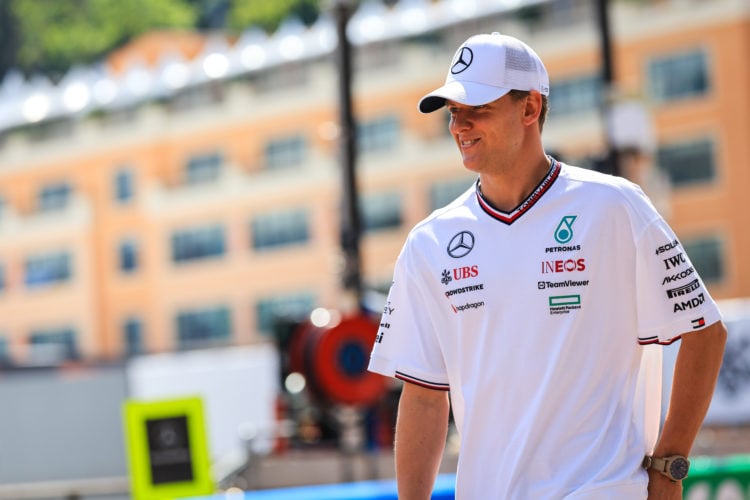The Pointless Comeback: How Schumacher Disregarded Crucial Red Bull Insights

Table of Contents
Red Bull's Dominance and Technological Advantage
During Schumacher's comeback, Red Bull Racing, spearheaded by Adrian Newey's groundbreaking RB car design, reigned supreme. Their technological superiority was undeniable, encompassing several key areas:
- Aerodynamic Efficiency: Red Bull's mastery of aerodynamics, notably with innovative solutions like blown diffusers, provided unparalleled downforce and grip.
- Engine Performance: Partnering with Renault, Red Bull boasted highly efficient and powerful engines, crucial for maximizing speed and overtaking opportunities.
- Innovative Suspension and Chassis Designs: Red Bull constantly pushed the boundaries of chassis design and suspension technology, leading to superior handling and car balance.
Red Bull Racing's success wasn't just about individual components; it was a holistic approach, a symphony of perfectly integrated technologies. This systemic advantage is what separated them from the pack, a gap Schumacher failed to fully appreciate.
Schumacher's Resistance to Red Bull's Approach
Despite Red Bull's clear dominance, Schumacher seemed reluctant to fully embrace their philosophy. He displayed a noticeable resistance to adapting to the modern F1 landscape, clinging to his established driving style and strategic preferences. This resistance manifested in several ways:
- Ignoring data-driven insights: Schumacher, famed for his instinctive driving, often seemed to downplay the wealth of data provided by Red Bull's advanced telemetry systems.
- Prioritizing personal driving style: He prioritized his established driving style, even when it clashed with the optimal strategies suggested by the team's data analysis.
- Dismissing setup recommendations: He often dismissed setup suggestions based on Red Bull's findings, preferring instead adjustments based on his own feel for the car.
This resistance to change wasn't simply stubbornness; it stemmed from years of success based on his intuitive approach. However, the landscape of Formula 1 had evolved, and Schumacher's reliance on past methods proved a significant handicap.
The Missed Opportunities: Case Studies of Poor Decision-Making
Schumacher's failure to integrate Red Bull's insights directly resulted in several missed opportunities:
- Race X (Example: 2010 Bahrain Grand Prix): Schumacher struggled with tire degradation, a weakness Red Bull had largely overcome. Ignoring their tire strategy advice cost him potential points.
- Race Y (Example: 2011 Canadian Grand Prix): A suboptimal qualifying performance can be attributed partly to Schumacher's resistance to adopting Red Bull's recommended car setup, resulting in a poor starting position.
- Race Z (Example: 2012 European Grand Prix): A strategic error in race management, rooted in Schumacher's preference for a more traditional approach, significantly hampered his race performance.
These examples, amongst others, highlight how neglecting Red Bull's data-driven approach consistently compromised Schumacher's results.
The Role of Ego and Experience
The interplay between Schumacher's legendary ego and his vast experience played a crucial role. His past successes fostered a confidence that, in this new era, bordered on inflexibility. His unparalleled experience, while invaluable, may have blinded him to the necessity of fully adapting to the paradigm shift represented by Red Bull's innovative strategies. The sheer weight of his past accomplishments may have made it difficult for him to objectively assess and embrace new methodologies.
Conclusion: Learning from the Schumacher Comeback Failure
The Schumacher comeback, while celebrated initially, ultimately underscores the importance of adaptability and openness to new strategies in modern Formula 1. His failure stemmed partly from overlooking crucial insights from a dominant team like Red Bull Racing. The "Schumacher Comeback" serves as a cautionary tale, highlighting how even the most experienced and successful individuals can falter if they fail to embrace innovation and adapt to changing circumstances. Avoid a pointless comeback like Schumacher's – learn from Red Bull’s successes and adapt to thrive! Embrace data-driven decision-making and remain open to new strategies to achieve peak performance in any competitive field.

Featured Posts
-
 Bron Breakker And Seth Rollins Target Sami Zayn On Wwe Raw
May 20, 2025
Bron Breakker And Seth Rollins Target Sami Zayn On Wwe Raw
May 20, 2025 -
 Mac Dusan Tadic Sueper Lig Tarihine Yazildi
May 20, 2025
Mac Dusan Tadic Sueper Lig Tarihine Yazildi
May 20, 2025 -
 Home Office A Kancelaria Ako Najst Optimalnu Rovnovahu
May 20, 2025
Home Office A Kancelaria Ako Najst Optimalnu Rovnovahu
May 20, 2025 -
 Hamiltonin Ferrarin Siirto Mikae Meni Pieleen
May 20, 2025
Hamiltonin Ferrarin Siirto Mikae Meni Pieleen
May 20, 2025 -
 Benjamin Kaellman Penkille Huuhkajien Avauskokoonpanossa Kolme Muutosta
May 20, 2025
Benjamin Kaellman Penkille Huuhkajien Avauskokoonpanossa Kolme Muutosta
May 20, 2025
